Filter by

Transitional Justice in Nicaragua 1990–2012 Drawing a Line Under the Past
Astrid Bothmann examines historical, political and socioeconomic factors that explain the absence of transitional justice in Nicaragua from 1990 to 2012. The author provides the first systematic analysis of the reasons for the lack of transitional justice in Nicaragua after the end of the Sandinista regime and the civil war (1990). Contrary to other Latin American states of the third wave of de…
- Edition
- -
- ISBN/ISSN
- 978-3-658-10503-7
- Collation
- -
- Series Title
- -
- Call Number
- -

Transforming Teacher Quality in the Global South Using Capabilities and Caus…
A common story of teachers from the Global South portrays them as deficient, unreliable and unprofessional. However, this book uses an innovative Capability Approach/Critical Realist lens to reveal the causal links between teachers' constrained capabilities and their 'criticised' behaviours and offer nuanced, creative strategies for improvements.
- Edition
- -
- ISBN/ISSN
- 978-1-137-49545-7
- Collation
- -
- Series Title
- -
- Call Number
- -
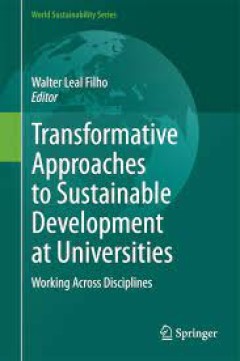
Transformative Approaches to Sustainable Development at Universities Working…
This book documents and disseminates experiences from a wide range of universities, across the five continents, which showcase how the principles of sustainable development may be incorporated as part of university programmes, and present transformatory projects and programmes, showing how sustainability can be implemented across disciplines. Sustainability in a higher education context is a fa…
- Edition
- -
- ISBN/ISSN
- 978-3-319-08837-2
- Collation
- -
- Series Title
- -
- Call Number
- -

The Education Systems of Europe
This updated second edition presents an analytical description of the education systems of all European countries, following common guidelines. These conceptual guidelines consider various criteria concerning presumptions as to the quality of a good education system. One of the book central aims is to explore the paradoxical character of education, i.e. the relationship between universal values…
- Edition
- 1
- ISBN/ISSN
- 978-3-319-07473-3
- Collation
- XX, 908, 46 b/w illustrations, 1 illustrations in colour
- Series Title
- Global Education Systems
- Call Number
- -

A Cosmopolitan Jurisprudence: Essays in Memory of H. Patrick Glenn
H. Patrick Glenn (1940–2014), Professor of Law and former Director of the Institute of Comparative Law at McGill University, was a key figure in the global discourse on comparative law. This collection is intended to honor Professor Glenn's intellectual legacy by engaging critically with his ideas, especially focusing on his visions of a 'cosmopolitan state' and of law conceptualized as 'trad…
- Edition
- -
- ISBN/ISSN
- 9781108894760
- Collation
- -
- Series Title
- -
- Call Number
- -
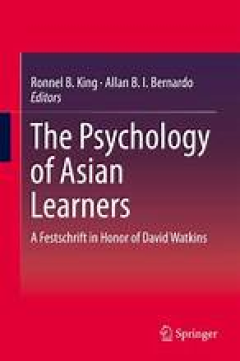
The Psychology of Asian Learners
This book celebrates the scholarly achievements of Prof. David A. Watkins, who has pioneered research on the psychology of Asian learners, and helps readers grasp the cognitive, motivational, developmental, and socio-cultural aspects of Asian learners learning experiences. A wide range of empirical and review papers, which examine the characteristics of these experiences as they are shaped by b…
- Edition
- 1
- ISBN/ISSN
- 978-981-287-576-1
- Collation
- XXVI, 664
- Series Title
- -
- Call Number
- -
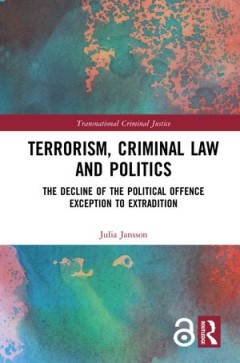
Terrorism, Criminal Law and Politics : The Decline of the Political Offence E…
Recent atrocities have ensured that terrorism and how to deal with terrorists legally and politically has been the subject of much discussion and debate on the international stage. This book presents a study of changes in the legal treatment of those perpetrating crimes of a political character over several decades. It most centrally deals with the political offence exception and how it has cha…
- Edition
- -
- ISBN/ISSN
- 9780429583414
- Collation
- 300 halaman
- Series Title
- -
- Call Number
- 340 JAN t
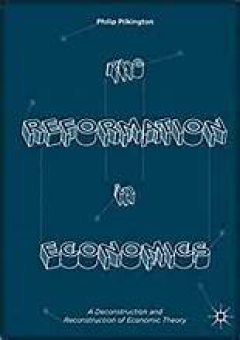
The Relevance of Academic Work in Comparative Perspective
This book is the first of two volumes that look at the changed landscape of higher education and the academic profession. This volume focuses on academic work, examining the significant changes that have taken place in the backgrounds, specialisations, expectations and work roles of academic staff. The academic profession is ageing, and becoming increasingly insecure, more accountable, more int…
- Edition
- 1
- ISBN/ISSN
- 978-3-319-11767-6
- Collation
- X, 252, 16 b/w illustrations, 18 illustrations in colour
- Series Title
- The Changing Academy – The Changing Academic Profession in International Comparative Perspective
- Call Number
- -
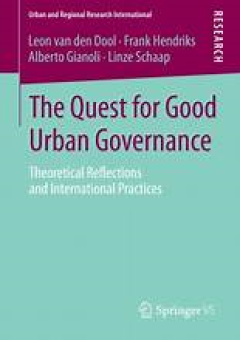
The Quest for Good Urban Governance
This book demonstrates both successes and failures in attempts to get closer to the ideal of good urban governance in cities in North-America, Europe, and Asia. It presents a value menu and deliberately does not come up with “one best way” for improving urban governance. Good urban governance is presented as a balancing act, an interplay between government, business and civil society in whi…
- Edition
- 1
- ISBN/ISSN
- 978-3-658-10079-7
- Collation
- X, 242, 9 b/w illustrations
- Series Title
- Urban and Regional Research International
- Call Number
- -
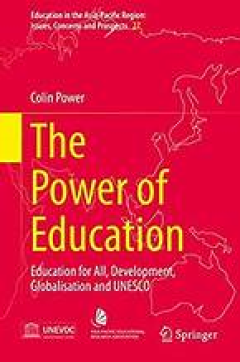
The Power of Education
This book is about the power of education: the kind of education that simultaneously improves the quality of life both of individuals and the wider society. It explains why education must be viewed as a basic human right, as a value in and of itself, and reviews the evidence on how education builds the human resources that individuals and nations need to be productive, to continue to learn, to …
- Edition
- 1
- ISBN/ISSN
- 978-981-287-221-0
- Collation
- XIX, 280
- Series Title
- Education in the Asia-Pacific Region: Issues, Concerns and Prospects
- Call Number
- -
 Computer Science, Information & General Works
Computer Science, Information & General Works  Philosophy & Psychology
Philosophy & Psychology  Religion
Religion  Social Sciences
Social Sciences  Language
Language  Pure Science
Pure Science  Applied Sciences
Applied Sciences  Art & Recreation
Art & Recreation  Literature
Literature  History & Geography
History & Geography